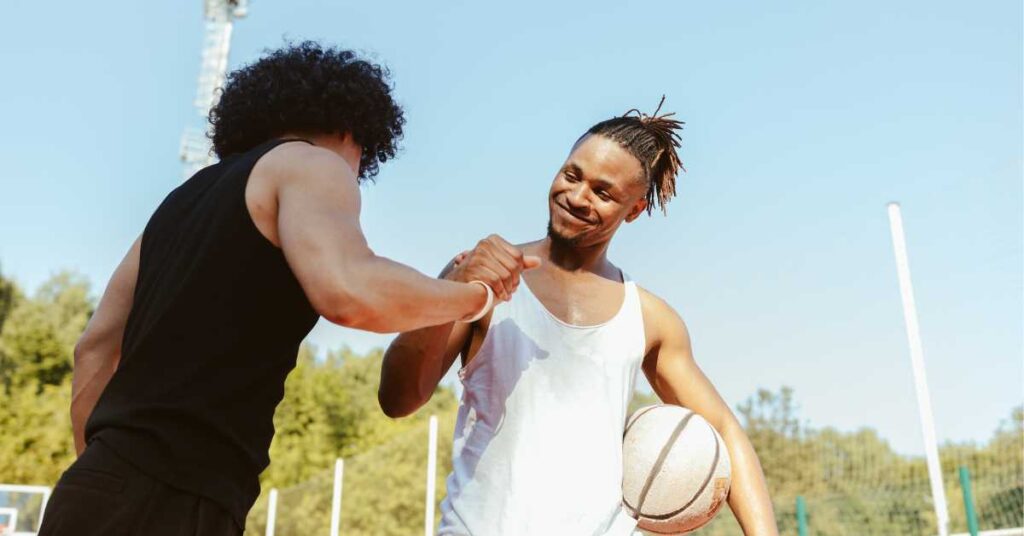Introduction
As an athlete, proper hydration is a crucial aspect of optimizing your performance. Staying hydrated ensures that your body functions at its best, allowing you to perform at peak levels. When it comes to hydration, the debate between water and sports drinks often arises.
In this article, we will delve into the benefits of both water and sports drinks, compare their effectiveness in hydration and performance, and provide guidelines to help you make the right choice for your specific needs.
Understanding Hydration
The Role of Water in the Body
Water is the foundation of life, and its importance cannot be overstated. It serves as a vital component of our body’s structure and plays a key role in various physiological functions.
Water is responsible for regulating body temperature, lubricating joints, transporting nutrients, and aiding in digestion and waste elimination. For athletes, maintaining proper hydration is essential for optimal performance and overall well-being.
The Benefits of Proper Hydration for Athletes
Proper hydration provides numerous benefits for athletes. It helps prevent dehydration, which can lead to fatigue, muscle cramps, and reduced endurance. Adequate hydration supports cardiovascular function, allowing for efficient delivery of oxygen and nutrients to working muscles.
It also aids in thermoregulation, helping to prevent heat-related illnesses during intense physical activity. By staying hydrated, athletes can maximize their potential and enhance their performance on the field or in the gym.
Water: The Essential Hydration Source
Advantages of Water for Hydration
Water is the fundamental and natural source of hydration. It is easily accessible, affordable, and generally safe for consumption.
Water effectively replenishes fluid losses and helps maintain proper hydration levels. It is essential for everyday hydration needs and is suitable for shorter duration and lower-intensity exercises.
Recommended Water Intake for Athletes
The recommended water intake for athletes varies depending on factors such as body weight, activity level, and environmental conditions. A general guideline is to consume at least 8 cups (64 ounces) of water per day.
However, during exercise, additional water intake is necessary to compensate for fluid losses through sweat. It is important to listen to your body’s thirst cues and sip water regularly to maintain hydration throughout your training or competition.
The Science Behind Sports Drinks
Electrolytes and Their Impact on Hydration
Electrolytes, such as sodium, potassium, and magnesium, are minerals that play a crucial role in maintaining fluid balance and supporting optimal hydration. During intense exercise, electrolytes are lost through sweat, and their imbalance can lead to performance decline and increased risk of cramping.
Sports drinks are formulated to contain electrolytes, helping to replenish these essential minerals and maintain fluid-electrolyte balance.
Carbohydrates in Sports Drinks: Fueling Performance
Sports drinks often contain carbohydrates, which provide a source of energy to fuel athletic performance.
Carbohydrates are the body’s preferred fuel source during exercise, and consuming them in the form of sports drinks can help maintain blood sugar levels and delay fatigue. This becomes particularly important during prolonged endurance activities or high-intensity workouts.
Comparing Water and Sports Drinks
Hydration Effectiveness
Both water and sports drinks can effectively hydrate the body, but sports drinks may offer an additional advantage in situations where electrolyte replenishment is critical.
Water is readily absorbed by the body and can effectively replace fluid losses. However, sports drinks containing electrolytes can enhance hydration by promoting fluid retention and optimizing electrolyte balance, especially during longer-duration activities or in hot environments.
Performance Enhancement
Sports drinks have the added benefit of providing carbohydrates, which can enhance performance during prolonged or intense exercise. The availability of carbohydrates in sports drinks helps fuel working muscles and delays the onset of fatigue.
Water, on the other hand, does not provide carbohydrates and is primarily focused on hydrating the body without additional performance-enhancing components.
Factors to Consider in Choosing Hydration Methods
Duration and Intensity of Exercise
The duration and intensity of your exercise play a significant role in determining your hydration needs. For shorter and less intense workouts, water is generally sufficient to maintain proper hydration.
However, for prolonged activities lasting longer than an hour or high-intensity exercises, sports drinks can offer benefits by providing both hydration and energy through carbohydrates and electrolytes.
Environmental Conditions
Environmental conditions, such as heat and humidity, impact fluid loss through sweat and increase the importance of effective hydration.
In hot and humid environments, sports drinks with electrolytes can aid in fluid retention and replace essential minerals lost through sweat. However, in cooler conditions or shorter workouts, water alone may be adequate for hydration.
Personalizing Hydration Strategies
Individual Variations in Hydration Needs
Each individual has unique hydration requirements based on factors such as body composition, sweat rate, and personal preferences. It is crucial to listen to your body and adjust your hydration strategy accordingly.
Monitor your fluid intake, pay attention to your thirst levels, and consider factors such as the duration and intensity of your exercise when determining whether water or a sports drink is the better choice for you.
Trial and Error: Finding What Works for You
Finding the optimal hydration strategy for your needs may require some experimentation. Test different approaches during training sessions to determine what feels best and provides the most effective hydration and performance benefits for your body. Keep track of how you feel and perform with different hydration methods to identify the approach that works best for you.
Making the Right Choice
Guidelines for Choosing Water or Sports Drinks
To make an informed decision between water and sports drinks, consider the following guidelines:
Shorter Duration and Lower Intensity: For workouts lasting less than an hour or lower-intensity exercises, water is generally sufficient to maintain hydration.
Longer Duration and Higher Intensity: During prolonged or high-intensity activities, sports drinks can provide an additional energy boost and electrolyte replenishment.
Hot and Humid Environments: In hot and humid conditions, sports drinks with electrolytes can aid in fluid retention and electrolyte balance.
Personal Preference: Ultimately, choose the hydration method that feels most comfortable and effective for you. Monitor your body’s response and adjust accordingly.
Hydration Tips for Different Scenarios
Before Exercise: Start well-hydrated by drinking water in the hours leading up to your workout or competition.
During Exercise: Sip water regularly or use sports drinks for longer-duration or intense activities to maintain hydration and provide energy.
After Exercise: Replenish fluids with water and consider consuming a post-workout snack or meal that includes both carbohydrates and fluids.
Conclusion
When it comes to hydration in sports, both water and sports drinks have their advantages. Water is the essential and readily available hydration source, while sports drinks offer electrolyte replenishment and carbohydrates for performance enhancement.
Choosing between the two depends on factors such as exercise duration, intensity, environmental conditions, and personal preferences. By understanding your individual hydration needs and considering these factors, you can make an informed decision and optimize your performance through proper hydration.
Frequently Asked Questions (FAQs)
Q1: Is water enough for hydration during exercise?
A1: Water is generally sufficient for hydration during shorter-duration and lower-intensity exercises. However, for longer or high-intensity activities, sports drinks can provide additional benefits by replenishing electrolytes and supplying carbohydrates for energy.
Q2: Do sports drinks hydrate better than water?
A2: Sports drinks can enhance hydration by providing electrolytes and carbohydrates. They are particularly beneficial during prolonged or intense exercise, as they aid in fluid retention and energy supply. However, for shorter workouts, water is often adequate for hydration.
Q3: Can I mix water with sports drinks for hydration?
A3: Yes, you can mix water with sports drinks to dilute the concentration of sugars and electrolytes. This can be a useful strategy if you prefer a milder taste or want to customize the hydration levels based on your specific needs.
Q4: Are there any risks associated with sports drinks?
A4: Sports drinks are generally safe when consumed in moderation. However, they may contain added sugars and calories, so it’s important to consider your overall dietary intake. Additionally, individuals with specific medical conditions should consult with a healthcare professional before incorporating sports drinks into their hydration routine.
Q5: Can I make my own sports drink at home?
A5: Yes, you can create your own sports drink at home by combining water, a source of carbohydrates (such as fruit juice or honey), and a pinch of salt for electrolytes. However, it’s essential to maintain the proper balance of carbohydrates and electrolytes to ensure effective hydration.
Disclaimer: When it comes to sport nutrition, always seek professional guidance and advice from medical professionals, nutritionists and other relevant professionals who will be in a position to better address specific concerns or issues related to your individual situation. In no event shall we be liable for any direct, indirect, incidental, special, or consequential damages arising out of or in connection with your use of this website or the content provided herein.






